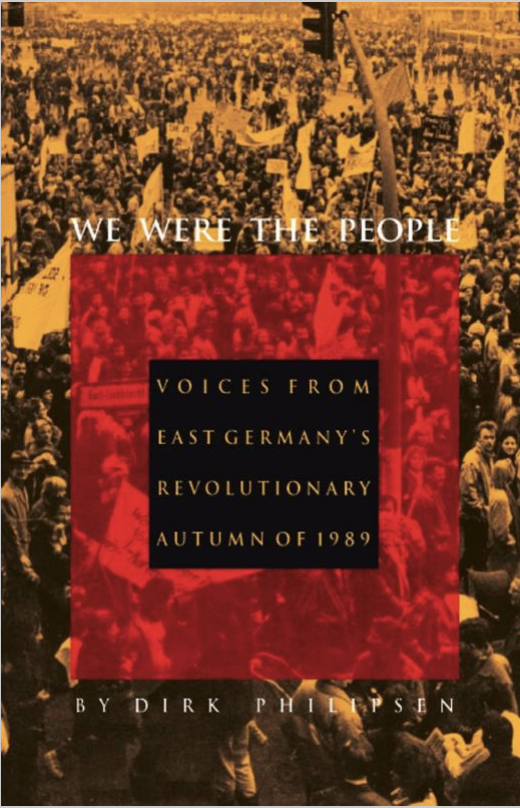Praise for We Were The People:
“This collection of interviews conducted during the extraordinary events of late 1989 allows the reader insight into the feelings and thought of a wide range of GDR citizens. . . . [This is] an invaluable historical source book.””
WE WERE THE PEOPLE : VOICES FROM EAST GERMANY'S REVOLUTIONARY AUTUMN OF 1989
KINDLE | HARDCOVER | PAPERBACK | 1992 | IBSN: 9780822312949 | 392 PP | PURCHASE HERE.
On the night of November 9, 1989, an electrified world watched as the Berlin Wall came down. Communism was dead, the Cold War was over, and freedom was on the rise—or so it seemed. We Were the People tells the story behind this momentous event.
In an extraordinary series of interviews, the key actors in the drama that transformed East Germany speak for themselves, describing what they did, what happened and why, and what it has meant to them.
The result is a powerful firsthand account of a rare historical moment, one that reverberates far beyond the toppled wall that once divided Germany and the world.
The drama We Were the People recreates is remarkable for its richness and complexity. Here are citizens organizing despite threats of bloody crackdowns; party functionaries desperately trying to survive as time-honored political prerogatives crumble beneath their feet; an oppressed people discovering the possibilities of power and freedom, but also the sobering strangeness of new political realities. With their success, East Germans encountered the overpowering might of thie Western neighbor--and stand perplexed before the onslaught of real estate agents, glossy consumer ads, political professionalism--and the discovery that a lifetime of social experience has suddenly lost all usable context. They became, in the words of one participant, a people "without biography."
Over all the recent events and unlikely turns recounted here, one thing remains paramount: the sweep of the initial democratic conception that animated the East German revolution.
We Were the People brings this movement to life in all its drama and detail, and vividly recovers a historic moment that altered forever the shape of modern Europe.
-
“This highly successful oral history is enriched by meticulous and intelligent notes and enlightening introductions … sympathetic to what he discovered to have been deep, if hard-to-define, aspirations for a democratic society … revealing texts that challenge any simple notion about the inevitable victory of Western institutions or mores.” - Fritz Stern, Foreign Affairs
With “critical intelligence he searches for what went wrong… Philipsen insists that their vision was noble and asks us to remember a moment in history when East Germans had a sense of community” - The New Yorker

